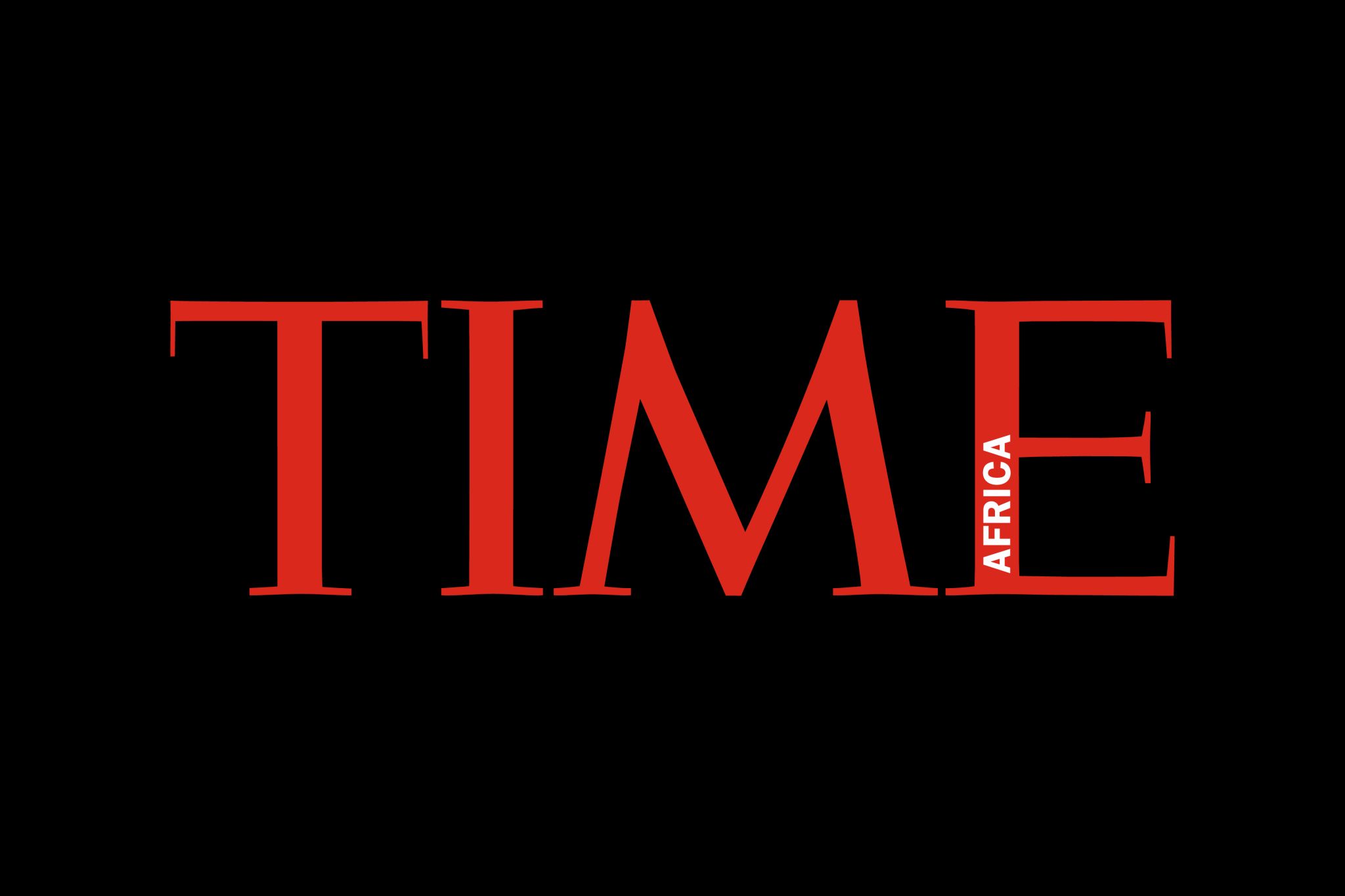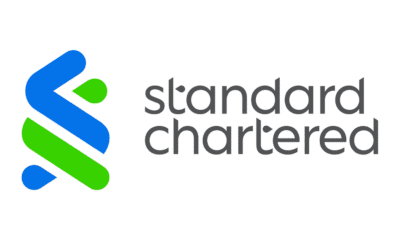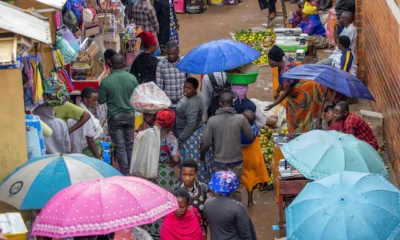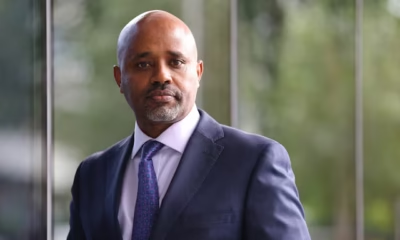Media, Consumer Behavior & Regional Think Pieces
Kenya Regulator Approves Aga Khan’s NPRT in Nation Media Restructure
Nation Media’s largest shareholder, the Aga Khan Fund for Economic Development, will transfer its controlling stake to Nairobi-based NPRT Holdings. Kenya’s CMA said the move is an internal restructuring. Shares of Nation Media closed flat at KES 15.20.

Kenya’s CMA cleared NPRT, an Aga Khan-owned unit, to acquire AKFED’s 54% stake in Nation Media without a takeover bid. Deal expected in Q4 2025.
Kenya’s Capital Markets Authority has approved a plan by NPRT Holdings Africa Ltd. to acquire the Aga Khan’s controlling stake in Nation Media Group Plc without making a buyout offer to minority investors.
The exemption, granted on Sept. 10, covers the transfer of 92.6 million shares — or 54.08% of NMG — from the Swiss-based Aga Khan Fund for Economic Development (AKFED) to NPRT, its Nairobi subsidiary.
Why It Matters
Takeover rules in Kenya usually force investors who cross 50% ownership to make a full offer for the rest of the company. Regulators said this case was different because AKFED already controls the business.
“This exemption lets the deal proceed while protecting investor interests,” the CMA said.
The share transfer, first announced in July, still requires approval from the Nairobi Securities Exchange and the Communications Authority of Kenya. Closing is expected in Q4 2025.
Market Impact
Nation Media’s stock ended flat on Monday at KES 15.20. Analysts said investors see little change in direction.
“This is an internal restructure, not a new takeover,” said Faith Atiti, head of research at NCBA Group.
NPRT Explained
NPRT Holdings Africa was created in 2019 as a wholly owned arm of AKFED. Its mandate is to manage East African investments locally and cushion them from regulatory and tax shocks.
“This is about localisation, not retreat,” said James Mworia, chief executive of Centum Investment.
Nation Media’s Position
Nation Media, founded in 1960, is East Africa’s biggest independent media house. It runs the Daily Nation, The East African, Daily Monitor, and multiple TV and digital brands.
The company is listed on exchanges in Nairobi, Kampala, Kigali, and Dar es Salaam. At the end of 2024, its 10 largest investors held 72.38% of shares. AKFED led with 54.08%, followed by Alpine Investments at 12.29%. This May, the CMA approved a rights issue to Kenya’s oldest media house , the Standard Media Group,to fund digital reinvention amid media disruption and legacy debt challenges.
In a July 31 statement, Nation Media told shareholders the restructure would not affect operations or editorial independence.
Signals for Investors
Kenya’s regulator is showing flexibility. Similar exemptions have been made in South Africa and Nigeria, where global funds use local units to hedge currency risks.
“This decision shows pragmatism without undermining minority shareholders,” said Renee Ngamau, a Nairobi-based governance expert.
Aga Khan’s Wider Bet
AKFED, founded in 1963, invests in companies that blend profit with development. It employs more than 80,000 people in sectors from banking and insurance to energy, tourism, and media.
In Kenya, AKFED also owns Jubilee Insurance, Diamond Trust Bank, and Serena Hotels. Nation Media has long been its flagship in journalism.
“This restructuring strengthens its base,” said Ngamau. “It ensures AKFED remains anchored in East Africa.”
What’s Next
Once approvals are completed, AKFED’s 54% stake will move into NPRT. The structure will sit under Kenyan law, giving Nation Media a firmer local base.
“This is a long-term bet on East Africa’s growth story,” said Atiti of NCBA.
For investors, the signal is clear: the Aga Khan is not pulling back from media in the region. He is digging in deeper.
Media, Consumer Behavior & Regional Think Pieces
Karen Attiah Fired from Washington Post: African Perspectives on Media Freedom and Racial Discourse
The Washington Post labeled Attiah’s posts as “unacceptable” and accused her of endangering colleagues, allegations she strongly denies. African perspectives view this as part of a global pattern of silencing critical voices. Attiah’s career, including her reporting on Jamal Khashoggi, underscores her commitment to truth and human rights.

Karen Attiah was fired by The Washington Post over her social media commentary. Explore the African perspective on free speech, racial justice, and global media integrity.
Karen Attiah Fired from The Washington Post: An African Lens on Media Freedom and Racial Discourse
On September 15, 2025, Karen Attiah, the veteran columnist and former founding editor of The Washington Post’s Global Opinions section, announced her firing from the newspaper. Attiah, who has been a prominent voice on issues of race, gender, international affairs, and human rights, stated that her termination came in response to her social media commentary following the assassination of conservative activist Charlie Kirk. The Posts’ management reportedly labeled her posts as “unacceptable,” “gross misconduct,” and accused her of endangering colleagues’ safety—charges she categorically denies (The Guardian).
Attiah’s firing has reignited discussions about free speech, the independence of the press, and the racial dynamics at play in American media. From an African perspective, this event is not merely a U.S.-centric controversy—it resonates with journalists across the continent who face pressures from governments, corporations, and societal expectations while attempting to speak truth to power.
A Controversial Stand on Social Media
Attiah’s social media commentary on Bluesky in the days following Kirk’s death drew intense scrutiny. She posted:
“Refusing to tear my clothes and smear ashes on my face in performative mourning for a white man that espoused violence is… not the same as violence.” (Substack)
These posts criticized what she saw as the United States’ selective moral outrage and pointedly addressed racial double standards. She also highlighted Kirk’s past remarks about Black women, suggesting that these were violent in a social and cultural sense. Her defenders argue that this was a legitimate critique of societal patterns, not a call for physical harm.
For African journalists, such scrutiny is familiar. Across Africa, media workers are often penalized for challenging powerful interests or confronting entrenched social biases, from exposing government corruption to advocating for marginalized communities. Attiah’s case mirrors these global struggles for journalists who seek to hold power accountable without fear of retribution.
Institutional Reaction and Criticism
The Washington Post’s staff guild publicly condemned the firing, calling it a violation of fundamental free speech principles:
“The Post not only flagrantly disregarded standard disciplinary processes, it also undermined its own mandate to be a champion of free speech.” (Times of India)
The firing occurred amid a broader restructuring within the Post’s Opinion section, including a shift toward editorial priorities set by owner Jeff Bezos. Over the past year, several opinion columnists departed, citing differences with the new editorial direction. African commentators would recognize parallels in media landscapes where ownership and political influence often determine whose voices are amplified.
Organizations dedicated to press freedom, such as PEN America, have also expressed concern. They warned that these firings could create a “chilling effect,” discouraging journalists from engaging in meaningful discourse on sensitive topics (PEN America). From the African perspective, the fear of reprisal has long been a barrier to investigative reporting, especially in countries with weaker protections for journalists. Attiah’s firing reinforces the reality that even globally recognized publications are not immune to pressures that can stifle critical voices.
Attiah’s Career and Global Impact
Karen Attiah’s journalistic career is defined by her commitment to justice and human rights. She gained international prominence in 2018 when Saudi journalist Jamal Khashoggi, a columnist she had recruited, was murdered at the Saudi consulate in Istanbul. Attiah’s coverage of the Khashoggi case won her the 2019 Journalist of the Year award from the National Association of Black Journalists and a George Polk Award in Journalism (Wikipedia).
Born in Northeastern Texas to a Nigerian-Ghanaian mother and Ghanaian father, Attiah has maintained strong ties to Africa throughout her career. Her Fulbright Scholarship to study in Accra, Ghana, and a master’s in International Affairs from Columbia University enriched her understanding of African politics and diasporic issues. Her African heritage has informed much of her writing, offering perspectives on race, migration, and cultural identity that are often missing from mainstream Western media.
African Lessons from Attiah’s Firing
From an African lens, the firing of Karen Attiah offers several critical lessons:
- The Fragility of Media Freedom: Even in top-tier publications, journalists may face suppression for addressing uncomfortable truths, reflecting a global challenge for press independence.
- The Importance of Diverse Voices: Attiah was reportedly the last Black full-time opinion columnist at the Post. Her departure further underscores the need for media organizations worldwide to elevate voices that challenge entrenched power structures.
- Global Solidarity Matters: African journalists, scholars, and media institutions can draw inspiration from Attiah’s resilience. By supporting independent voices, the continent can contribute to a global culture that values ethical, fearless journalism.
Attiah’s Continuing Work
Despite her dismissal, Attiah remains undeterred. She continues to engage audiences through Substack and private educational initiatives like Resistance Summer School, focusing on race, media, and international affairs. She declared:
“The Washington Post fired me—but my voice will not be silenced.” (Substack)
Her story resonates with African media professionals navigating hostile environments, illustrating that the fight for integrity and truth in journalism transcends borders.
Conclusion: Media Freedom Beyond Borders
Karen Attiah’s firing is a stark reminder of the precarious nature of journalistic freedom, even in the world’s most prominent newspapers. From the African perspective, it signals both a cautionary tale and a call to action: protect diverse voices, support journalists who speak truth to power, and ensure that media continues to reflect the complexity of global society. As African nations expand their media landscapes, Attiah’s experience provides a roadmap for defending press independence, cultivating fearless journalism, and amplifying marginalized perspectives.
Related News:
Media, Consumer Behavior & Regional Think Pieces
TIME Africa Launches to Spotlight Continent’s Leaders
TIME Africa is set to launch in September 2025, bringing trusted journalism and live events to readers across the continent. The platform will cover over 50 countries in both English and French. It aims to highlight Africa’s leaders, innovators, and changemakers.

TIME Africa launches in Sept 2025 to showcase Africa’s leaders, innovators, and stories across 50+ countries in English & French.
TIME Africa: Trusted Journalism Comes to the Continent
On August 27, 2025, global media giant TIME announced the launch of TIME Africa, a new platform in partnership with Global Venture Partners (GVP).
The platform goes live in September 2025 at africa.time.com. It blends digital journalism and live events to bring trusted reporting to more than 50 African countries. Available in English and French, TIME Africa aims to connect with readers across the continent.
Shining a Spotlight on Africa
“TIME has provided trusted journalism for over a century. With TIME Africa, we will highlight the continent’s leaders, visionaries, and changemakers,” said Jessica Sibley, CEO of TIME.
“Africa is transforming across business, culture, and society. TIME Africa will showcase the continent’s growth and global impact,” added Josh Wilson, Managing Director of GVP.
Reaching the Continent
TIME Africa will serve audiences in Nigeria, South Africa, Kenya, Egypt, Ghana, Morocco, Tanzania, and Uganda, among others. In total, it covers over 50 countries, stretching from Algeria and Angola in the north to Zambia and Zimbabwe in the south.
The platform ensures readers in both English- and French-speaking countries can access high-quality reporting on business, politics, culture, and social change.
Continuing TIME’s Legacy
TIME has a long history of spotlighting Africa. Its TIME100 Impact Awards Africa honors leaders like Danai Gurira, Ellen Johnson Sirleaf, and Fred Swaniker, and highlights climate activists such as Vanessa Nakate.
With TIME Africa, the brand continues to deliver insightful journalism, in-depth analysis, and engaging live events that connect Africa to the world.It will cover events such as top 10 fintech companies leading East Africa’s growth in 2025.
For more information, visit africa.time.com.
-

 Public Finance & Economic Development5 days ago
Public Finance & Economic Development5 days agoUganda’s Debt Surge 2025: Domestic Borrowing and Economic Impact
-

 Banking, Finance & Economic Policy6 days ago
Banking, Finance & Economic Policy6 days agoStanChart Faces Fresh Pension Fight as 325 Ex-Employees File New Claims in Kenya
-

 Public Finance & Economic Development6 days ago
Public Finance & Economic Development6 days agoRwanda Economic Growth Slows to 7.8% in Q2 2025 Amid Industrial and Services Sector Challenges
-

 Banking, Finance & Economic Policy7 days ago
Banking, Finance & Economic Policy7 days agoHow Gideon Muriuki’s Leadership Turned Co-operative Bank of Kenya Into a $6.25 Billion Powerhouse
-

 Banking, Finance & Economic Policy5 days ago
Banking, Finance & Economic Policy5 days agoEyob Tekalign Named Ethiopia Central Bank Governor
-

 Banking, Finance & Economic Policy7 days ago
Banking, Finance & Economic Policy7 days agoDavid Hodnett Takes Helm at Standard Bank as CEO Amid Global Challenges
-

 Celebrities, Creatives & Public Figures5 days ago
Celebrities, Creatives & Public Figures5 days agoShamil Wamala: Ugandan TikTok Star Turning Social Media Hustle Into Global Influence
-

 Regional Security & Peacebuilding5 days ago
Regional Security & Peacebuilding5 days agoCongo Conflict Escalates: M23 Rebel Parade in Goma and Army Reinforcements Threaten Fragile Peace










